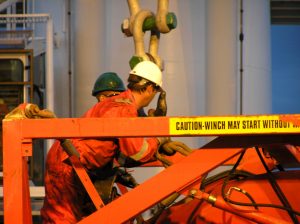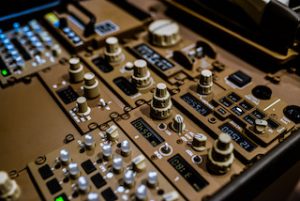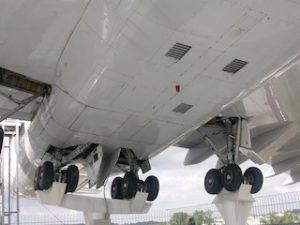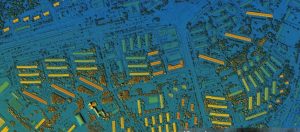Mechanical And Aerospace Engineering Job Prospects
 Mechanical and aerospace engineering are two of the most dynamic and in-demand fields in engineering. Both disciplines offer diverse career opportunities across multiple industries, from automotive and aerospace to energy and robotics. These fields attract individuals who are passionate about designing, analyzing, and improving mechanical systems, aircraft, spacecraft, and other technologies that shape our modern world.
Mechanical and aerospace engineering are two of the most dynamic and in-demand fields in engineering. Both disciplines offer diverse career opportunities across multiple industries, from automotive and aerospace to energy and robotics. These fields attract individuals who are passionate about designing, analyzing, and improving mechanical systems, aircraft, spacecraft, and other technologies that shape our modern world.
The job prospects in mechanical and aerospace engineering remain strong, driven by continuous technological advancements, increasing demand for more efficient and sustainable designs, and a growing need for skilled engineers to lead innovation in various industries. Whether you are a recent graduate or a seasoned professional, the career opportunities in mechanical and aerospace engineering are vast, with prospects for growth and specialization.
In this article, we will explore the career outlook for both mechanical and aerospace engineering, the key industries that hire professionals in these fields, the skills and qualifications that employers seek, and how emerging technologies are shaping the future of job prospects in these sectors.
Mechanical engineering: Broad field with extensive job opportunities
Mechanical engineering is the oldest and broadest branch of engineering, encompassing the design, analysis, and manufacturing of mechanical systems. The versatility of this field allows mechanical engineers to work in a wide range of industries, making it a highly sought-after profession.
Key industries for mechanical engineers
Mechanical engineers are needed in almost every sector, but some industries provide the largest number of opportunities:
-
- Automotive industry: Mechanical engineers play a critical role in designing, testing, and manufacturing vehicles. With the rise of electric vehicles and autonomous driving technologies, the automotive industry is undergoing a major transformation. Engineers in this sector work on designing energy-efficient engines, optimising aerodynamics, and improving vehicle safety systems.
- Aerospace industry: While aerospace engineers specialise in this field, mechanical engineers are also employed to work on aircraft and spacecraft components. They contribute to the design and testing of propulsion systems, landing gear, structural components, and other mechanical systems in aircraft and spacecraft.
- Manufacturing and production: Mechanical engineers in the manufacturing sector focus on developing efficient production processes, optimising machinery performance, and improving product design. With the increasing adoption of automation and advanced manufacturing technologies, the demand for mechanical engineers who can work with robotics, 3D printing, and smart manufacturing systems is rising.
- Energy sector: Mechanical engineers in the energy industry work on the design and maintenance of power plants, renewable energy systems, and energy-efficient technologies. As the world transitions to cleaner energy sources like wind, solar, and hydrogen, engineers with expertise in these areas will be in high demand.
- Robotics and automation: As automation continues to expand across industries, mechanical engineers are at the forefront of designing robotic systems, automation tools, and smart manufacturing equipment. With the rise of Industry 4.0, engineers skilled in robotics are increasingly sought after.
- Biomedical engineering: In the biomedical field, mechanical engineers design medical devices, prosthetics, and assistive technologies. They also contribute to the development of rehabilitation equipment and healthcare robotics, improving patient care and enhancing medical procedures.
- Defence and military: Mechanical engineers in defence work on designing and developing weapons systems, military vehicles, and advanced machinery. Their expertise is critical in ensuring the reliability and performance of complex defense systems.
Skills and qualifications for mechanical engineers
To succeed in the mechanical engineering field, candidates must possess a combination of technical and soft skills. Some of the essential skills that employers look for in mechanical engineers include:
-
- Proficiency in CAD software: Computer-Aided Design tools such as SolidWorks, AutoCAD, and CATIA are essential for designing and testing mechanical components. Engineers must be proficient in using these tools to create detailed models and simulations.
- Strong analytical and problem-solving skills: Mechanical engineers must be able to analyse complex systems, identify potential issues, and develop practical solutions.
- Knowledge of manufacturing processes: Understanding various manufacturing methods, including machining, casting, welding, and additive manufacturing, is crucial for designing components that are cost-effective and easy to produce.
- Project management: Mechanical engineers often work on large projects, requiring excellent project management skills to ensure deadlines are met and resources are used efficiently.
- Familiarity with thermodynamics and fluid mechanics: These core principles are fundamental in mechanical engineering, especially in fields such as energy systems, HVAC, and automotive design.
Job outlook for mechanical engineers
According to the U.S. Bureau of Labor statistics, the job outlook for mechanical engineers is projected to grow by about 4% from 2022 to 2032. While this growth rate is steady, emerging technologies such as electric vehicles, renewable energy, and automation are expected to drive demand for mechanical engineers in new and expanding sectors. The median annual wage for mechanical engineers was $95,300 in 2023, but salaries can vary significantly depending on industry, location, and level of experience.
Aerospace engineering: High-demand careers in aviation and space exploration
Aerospace engineering is a specialized branch of engineering focused on the design, development, testing, and production of aircraft, spacecraft, satellites, and missiles. Aerospace engineers work on some of the most cutting-edge technologies, playing a key role in advancing air and space travel, defence systems, and satellite communications.
Key industries for aerospace engineers
Aerospace engineers are primarily employed in the following industries:
-
- Aviation: Aerospace engineers in the aviation industry design and develop commercial and military aircraft. They work on optimizing aerodynamics, improving propulsion systems, and ensuring structural integrity. With the growing demand for more fuel-efficient and environmentally friendly aircraft, aerospace engineers are at the forefront of developing next-generation aviation technologies.
- Space exploration: The space industry is experiencing a renaissance, with private companies like SpaceX, Blue Origin, and traditional aerospace giants such as Boeing and Lockheed Martin leading the way in space exploration. Aerospace engineers in this field design spacecraft, launch systems, and satellite technologies. The growing interest in lunar missions, Mars exploration, and space tourism presents exciting career opportunities for aerospace engineers.
- Defence and military: Aerospace engineers in the defence sector work on designing and developing advanced military aircraft, missiles, and unmanned aerial vehicles. Their expertise is critical for ensuring the performance and safety of military systems used in air combat and defense operations.
- Satellite communications: Aerospace engineers contribute to the design and development of satellites used for telecommunications, weather monitoring, and navigation. As the demand for global connectivity increases, the satellite industry is expected to see significant growth.
- Research and development: Aerospace engineers often work in research and development roles, collaborating with government agencies, universities, and private companies to explore new technologies in aerodynamics, propulsion, and materials science. They contribute to advancements in hypersonic travel, electric aircraft, and advanced propulsion systems.
Skills and qualifications for aerospace engineers
Aerospace engineering is a highly technical field, requiring a strong foundation in various scientific and engineering principles. Some of the key skills and qualifications for aerospace engineers include:
-
- Strong understanding of aerodynamics and propulsion: Aerospace engineers must have a deep knowledge of how air and space environments affect flight and propulsion systems.
- Expertise in structural analysis: Ensuring the structural integrity of aircraft and spacecraft is essential for safety and performance. Engineers must be skilled in analyzing stress, strain, and load-bearing capabilities of materials and designs.
- Proficiency in software tools: Like mechanical engineers, aerospace engineers use CAD software and simulation tools to design and test components. Additionally, software such as MATLAB and Simulink are commonly used for system modeling and control.
- Familiarity with aerospace materials: Aerospace engineers must understand the properties of lightweight and durable materials such as composites and alloys used in the construction of aircraft and spacecraft.
- Problem-solving and critical thinking: Aerospace engineers must be adept at solving complex technical problems, often under tight deadlines and budget constraints.
Job outlook for aerospace engineers
The job outlook for aerospace engineers is promising, with employment expected to grow by 6% from 2022 to 2032, according to the BLS. This growth is driven by increasing demand for aircraft and spacecraft, particularly in commercial space exploration and defense. The median annual wage for aerospace engineers was $125,900 in 2023, but salaries can be much higher for engineers working in specialised areas such as space exploration and defence.
Emerging technologies shaping the future of mechanical and aerospace engineering
The job prospects for mechanical and aerospace engineers are being shaped by several emerging technologies that are transforming both industries. Engineers who possess skills and knowledge in these areas are likely to see increased demand for their expertise:
- Electric propulsion: In both the automotive and aerospace industries, electric propulsion systems are becoming more prominent. The shift toward electric vehicles and electric aircraft is creating new opportunities for engineers skilled in energy storage, battery technology, and electric motor design.
- Automation and robotics: The rise of automation in manufacturing and aerospace systems is driving demand for engineers who can design robotic systems, autonomous vehicles, and unmanned aerial systems (UAS). Robotics and automation engineers are in high demand in industries ranging from automotive manufacturing to space exploration.
- Additive manufacturing: Additive manufacturing is revolutionizing how mechanical and aerospace components are designed and produced. Engineers with expertise in 3D printing technology can help companies reduce costs, improve efficiency, and create more complex and lightweight designs.
- Sustainability and green engineering: As industries focus on reducing carbon emissions and improving energy efficiency, engineers who specialize in sustainable design and renewable energy technologies are becoming increasingly valuable. In aerospace, this includes the development of hybrid and fully electric aircraft, while in mechanical engineering, it involves the design of energy-efficient systems and components.
- Space exploration and commercial spaceflight: The growing interest in space exploration and the commercialisation of space travel are creating exciting opportunities for aerospace engineers. Engineers working on space missions will contribute to the design of spacecraft, habitats, and propulsion systems for future missions to the Moon, Mars, and beyond.
Upgrade your job prospects
The job prospects for mechanical and aerospace engineers are strong, driven by technological advancements, industry demand, and the need for innovative solutions to global challenges. From designing electric vehicles and aircraft to working on space exploration missions, engineers in these fields have a wealth of opportunities to contribute to cutting-edge projects that shape the future of transportation, energy, and technology.
As emerging technologies such as electric propulsion, automation, and sustainable design continue to transform industries, mechanical and aerospace engineers with the right skills and qualifications will find themselves at the forefront of innovation. For those passionate about engineering and technology, these fields offer not only promising job prospects but also the chance to work on groundbreaking projects that impact the future of our world.










